Losing more trees at Copp's Hill
An ominous red girdle appeared on one of Copp's Hill's American Elms overnight. Depending on which Parks Department employee you ask, it's either the result of vandalism:
...or an indication that it will be removed, which is what the ranger I spoke to in person told me. Either way, it's very sad.
The tree in question is a perfect example of what ecologist Tom Wessels would call a Meadow Tree. Trees that grow in dense forests tend spend the bulk of their energy growing upwards - towards the available light. Their close neighbors do the same and the result are tall, skinny trees with branches growing upright. When trees are planted in meadows, or other spaces relatively devoid of other large trees, they tend to spread out - maximizing their ability to gather sunlight. The bottommost branches on this ancient elm grow at almost 90° angles from the trunk. (More on this later)
It's also likely that the tree is one of the originals planted in 1833 when the City set aside $50 for trees to "ornament the grounds". By 1921, there were reportedly over 200 trees there.
In the 1990s, Copp's Hill started to lose trees to vandals. The first Globe article on the subject describes a three-person team that vandalized one of the trees on the Terrace and then returned the next day - in a black truck - to completely cut it down.
An article the following day clarified that seven trees had been killed by vandals since 1995.
The vandalism continued into the 2000s. A 2004 Globe article described the destruction of two more trees - one in late 2003 and the other in March of 2004 - both of which were young Elms planted by a Boy Scout Troop after the previous tree-killings in the mid-nineties.
In 2005, Burying Ground-abutter, Friends of Copp's Hill Chairperson, and oft-quoted expert on the subject, Thomas Schiavoni, authored a memorandum detailing a January 2005 attack which left two more young trees dead. It's the most detailed account I've seen. It describes how Schiavoni and BPD Officer Fitzgerald traced footprints in the freshly-fallen snow from the scene of the crime, over the wall, and onto Hull Street before losing the trail.
The complete 2005 report from Schiavoni is fascinating. It's really worth a read and can be found here:
There are a smattering of reports of vandalism in the years between including this 311 report from 2012. The most recent attack happened in 2019 and was well covered by northendwaterfront.com.
Which brings us back to today. Is it vandalism, or is the Parks Department planning on cutting it down? If it's the latter, it's that possible it needs to come down due years of neglect. Those huge branches that grow almost straight out put tremendous stresses on the trunk. The upper connection to the tree can pull away, become infected, and - as was the case with a huge branch on yet another tree on Copp's Hill last week - come crashing down.
This particular tree had been dead for at least a year (note the lack of leaves in the google earth imagery from 2020).
Several other trees in the Burying Ground and on the Terrace showed signs of stress including large limbs which had recently broken.
At least half a dozen large trees have been purposefully removed or knocked down by wind on the Terrace or in the Burying ground in the last ten years.
I hope we can find a way to protect the remaining trees. Not only from vandals, but also from being ravaged by time. The Parks Department told me that an arborist is visiting Thursday to assess the tree that lost a limb last week. Let's hope they can assess the other trees as well and that the Parks Department is well-funded enough to take action where needed.
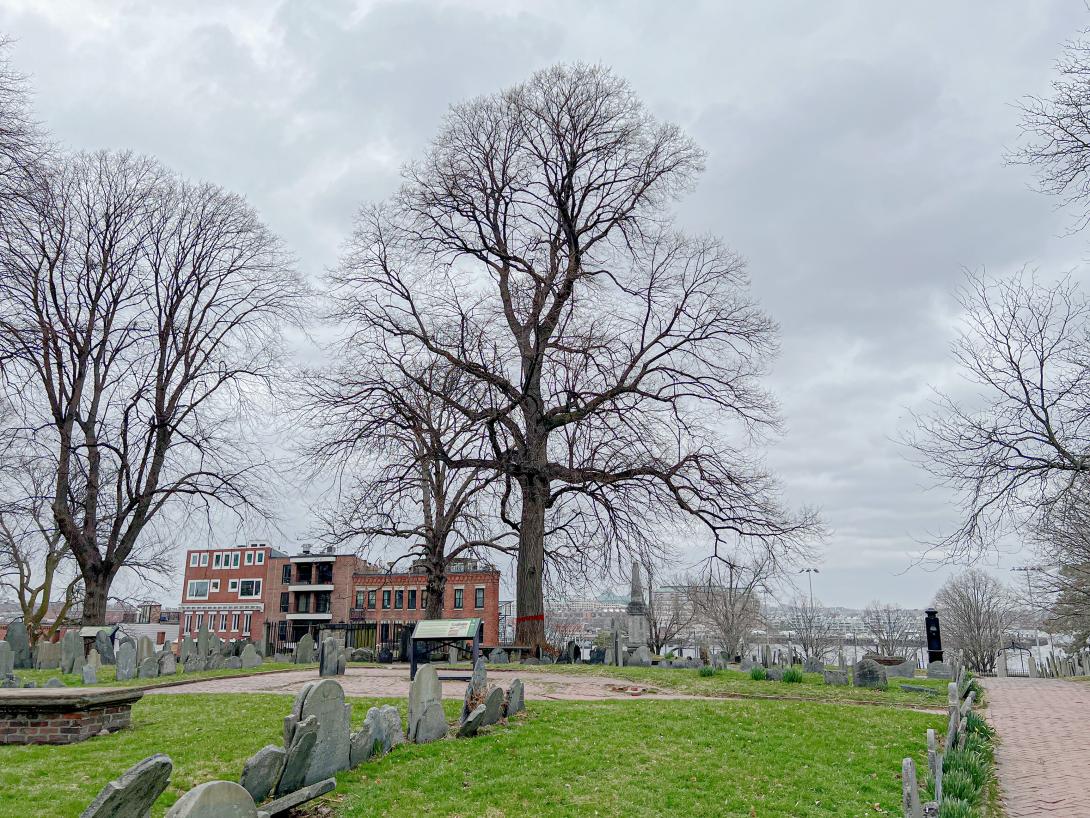
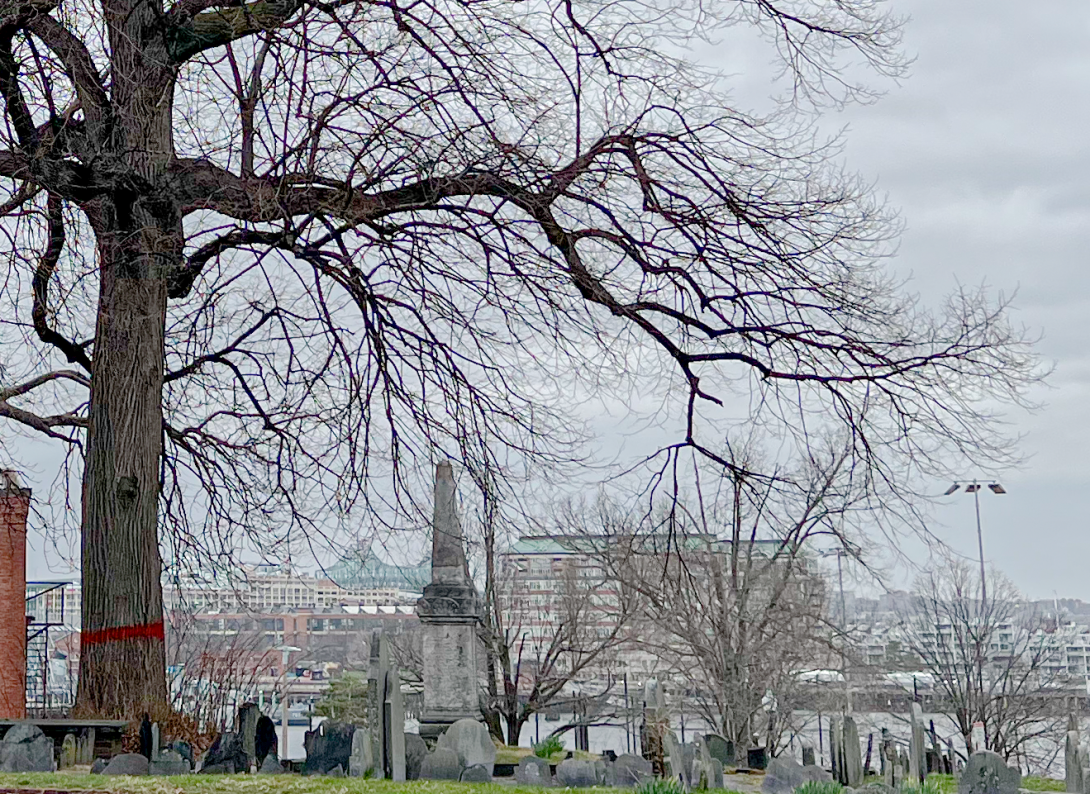

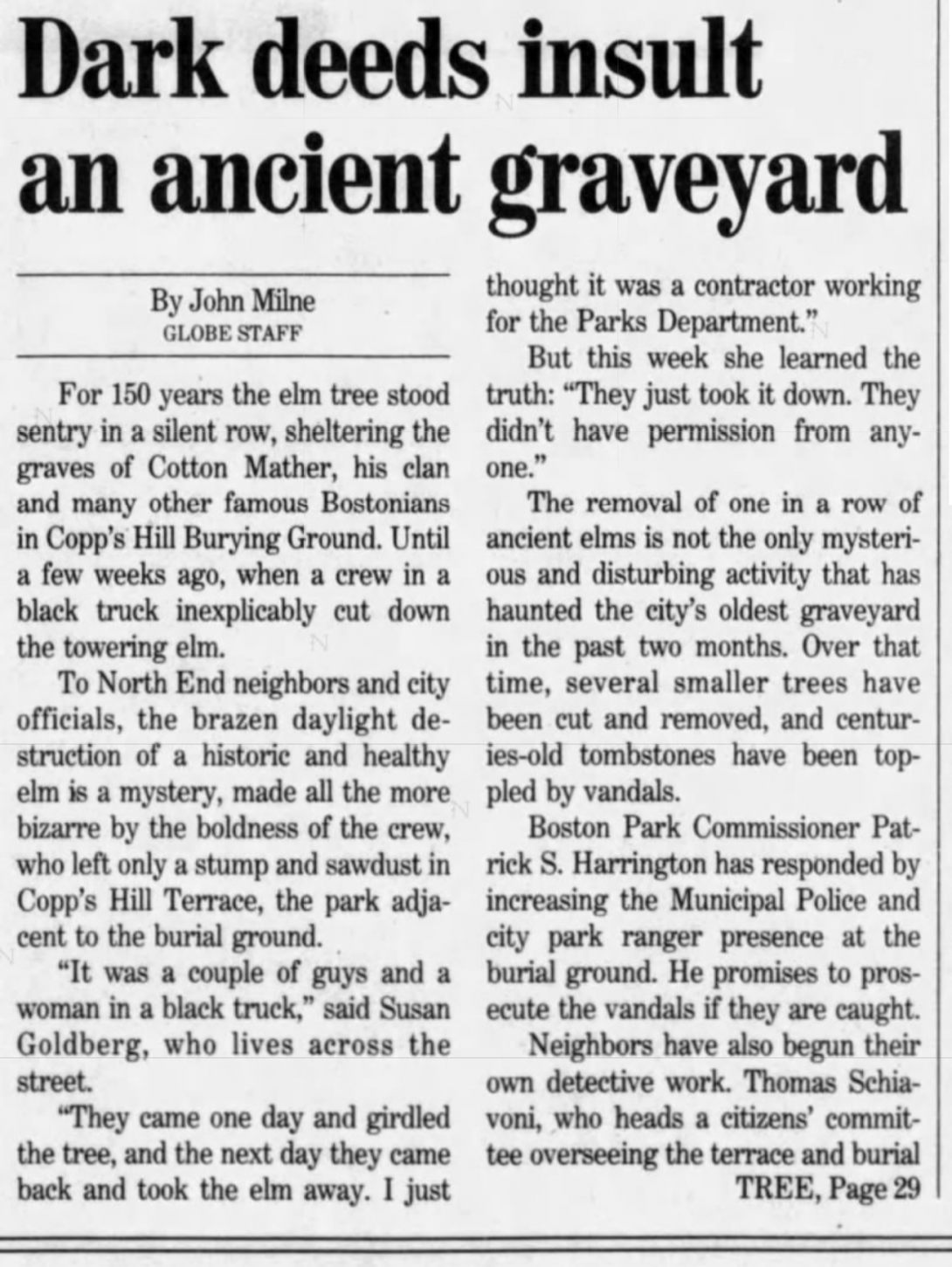

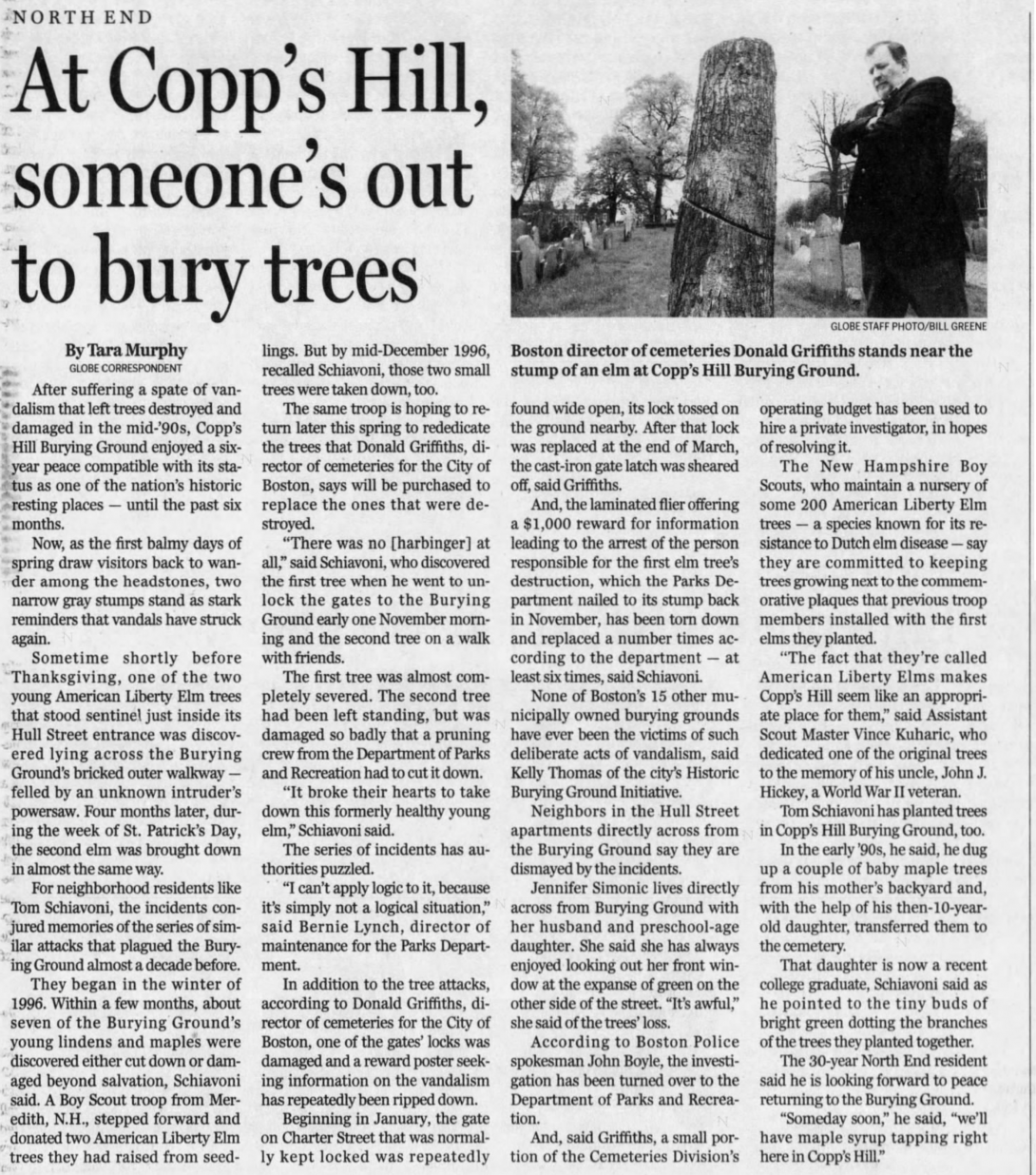
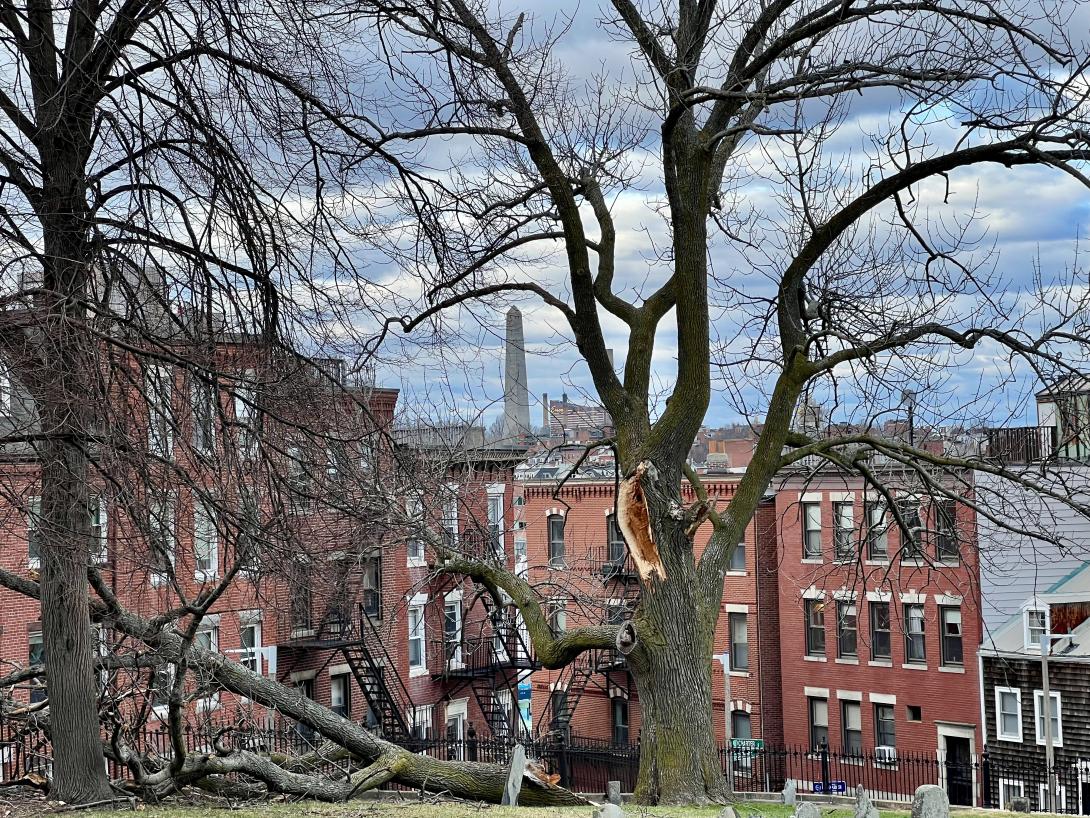
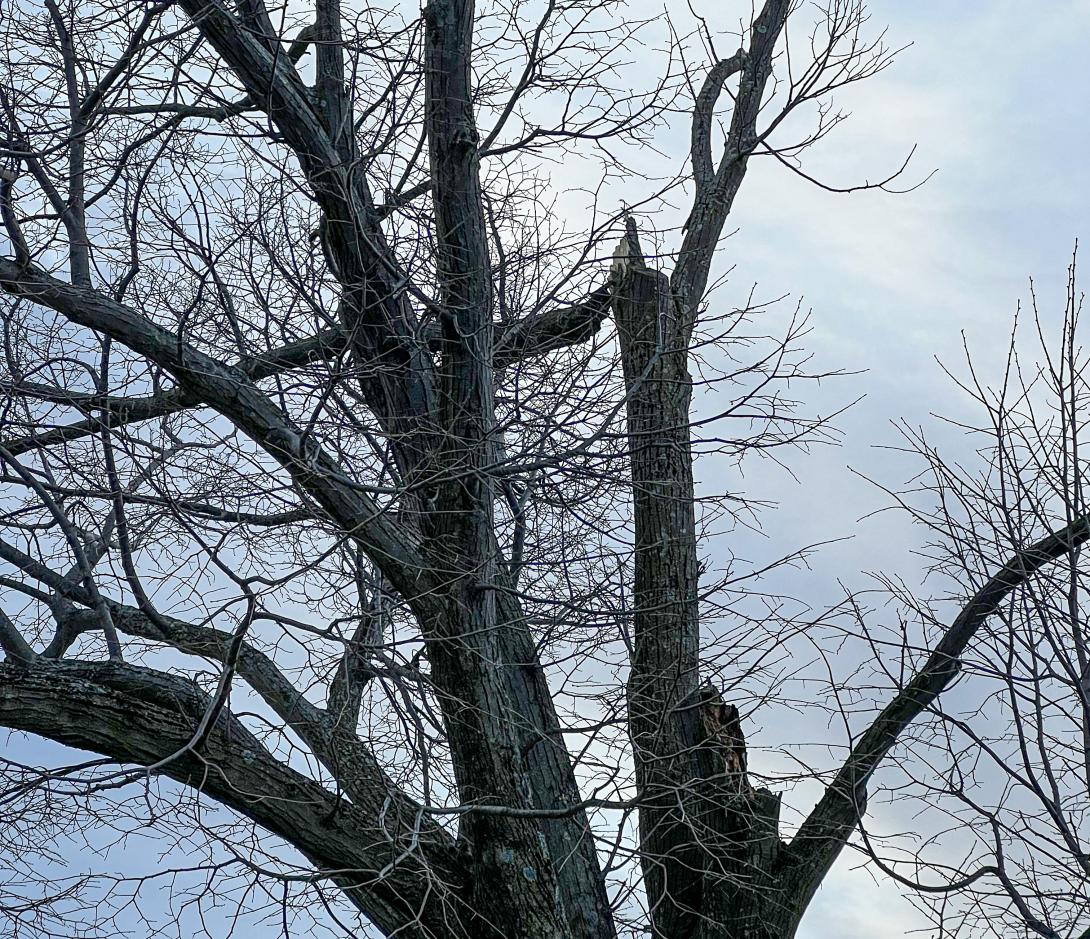
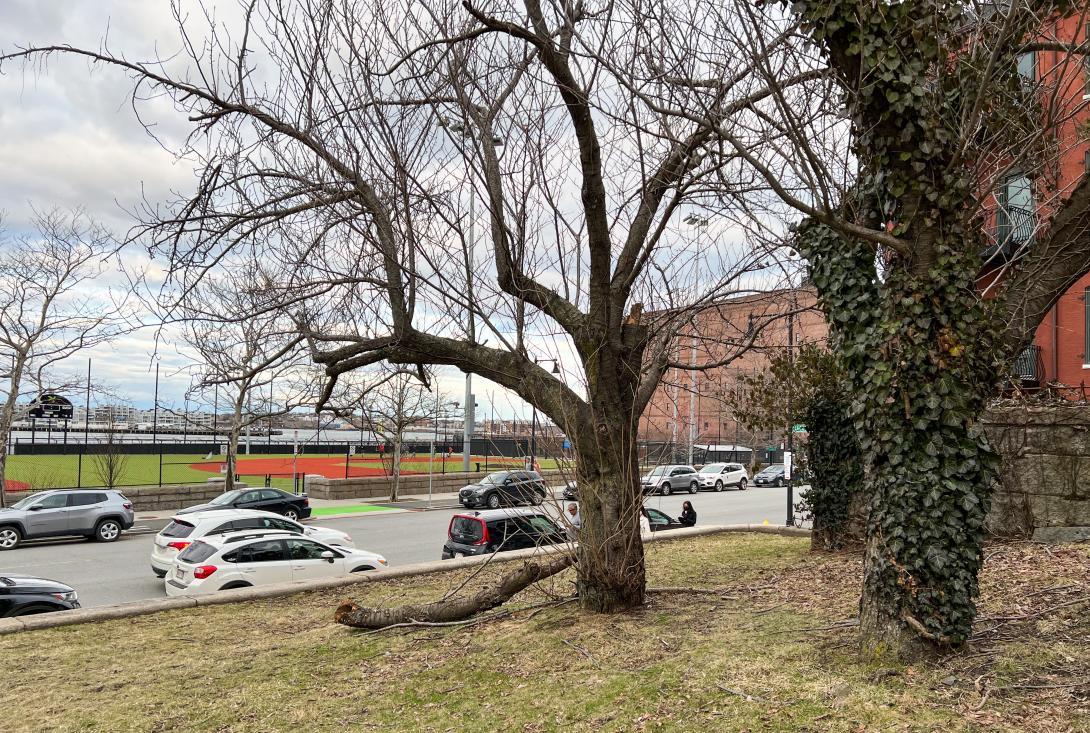
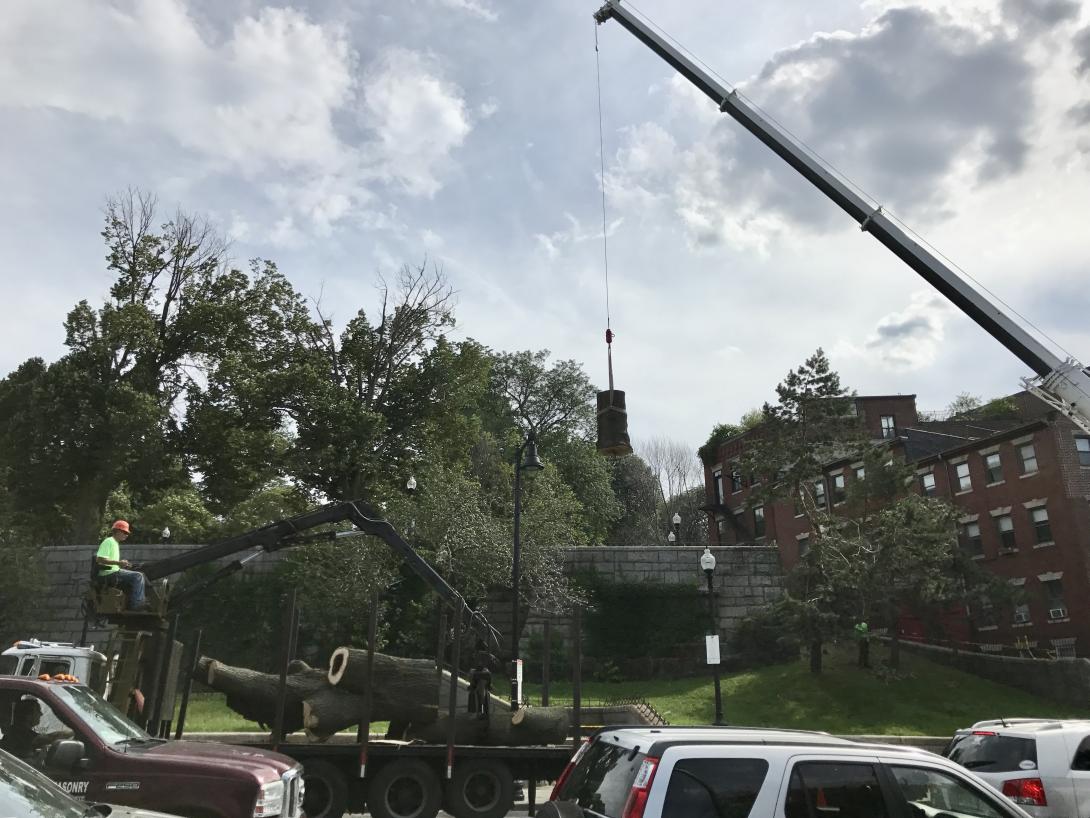
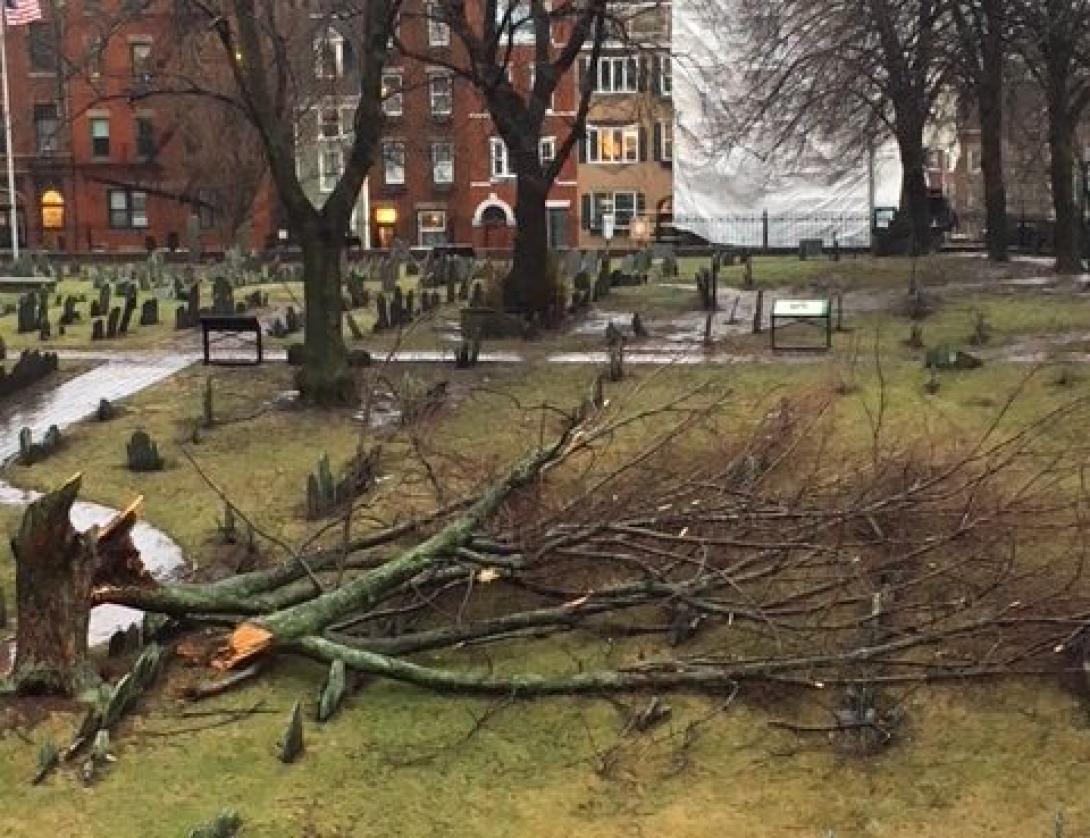
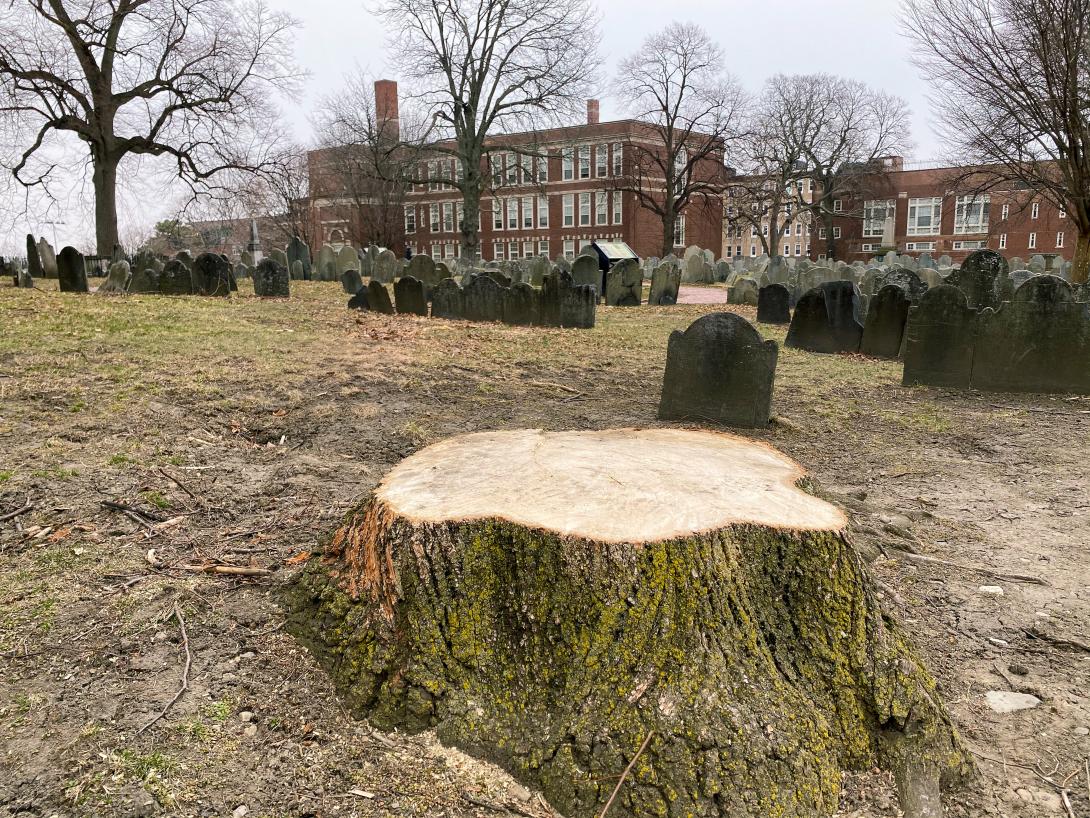
Add new comment